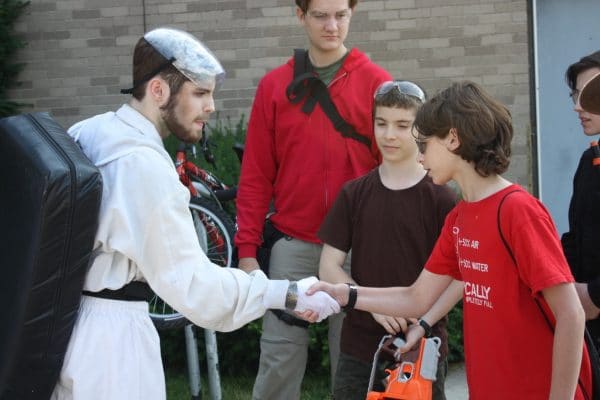
What is Nonviolent Conflict Resolution?
Nonviolent Conflict Resolution (NCR) is an approach to settle conflict that emphasizes communication, cooperation, and empathy. It is based on the idea that conflict can be resolved without the use of violence, and that by understanding the underlying issues and emotions involved, individuals can find mutually beneficial solutions. Note: This approach requires investment in Social Emotional Learning (SEL) so that students of NCR have a better understanding of their and others’ emotional state, motivations, and how best to de-escalate a situation.
Nonviolent conflict resolution can have many benefits, including:
- Reducing violence: NCR teaches individuals to resolve conflict through communication and cooperation, rather than through violence. This can help to reduce the incidence of physical and verbal aggression, and create a safer environment – both mentally and physically.
- Empathy and understanding: This approach emphasizes the importance of understanding the perspectives and emotions of others. By learning to empathize with others, individuals can build stronger relationships and work together to find mutually beneficial (and often more creative and robust) solutions.
- Conflict resolution skills: Individuals can learn the skills they need to resolve conflicts effectively and in a way that may be more long-lasting. Using skills such as active listening, negotiation, and problem-solving, each “side” of the conflict will have an opportunity to have their concerns heard and hopefully addressed. As well, individuals trained in NCR can feel more confident and capable in their ability to resolve conflicts by having more tools beyond physical or verbal aggression.
- Cultural sensitivity: With a robust training approach that includes Culture Based Learning, nonviolent conflict resolution can promote cultural sensitivity and understanding. By learning about different cultures and customs, individuals can gain a deeper understanding of the perspectives of others and find ways to resolve conflicts that respect the beliefs and values of all parties.
- Long-term benefits: The long-term benefits for individuals (and also for society as a whole) include reduction in crime, improved relationships, and communities where members feel a sense of belonging. This, in turn, can lead to higher engagement and a more inclusive society.
In order to be effective, nonviolent conflict resolution education or training requires not just conceptual learning, but also interactive practice. This can often be best served with live action roleplaying (called LARP) and a significant amount of time dedicated to debriefing so as to improve the transfer of knowledge outside of the learning environment and be available to the learner during actual conflict.
Nonviolent conflict resolution is an important set of skills that can provide more equitable, impactful, and long-lasting outcomes for individuals, organizations, and communities.
Guardian Adventures provide consulting and licensing of educational adventures, including a free LARP and cultural programs, for summer camps, amusement & attraction industries, and more.
